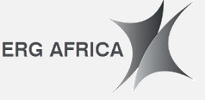Community Relations
Participatory rural appraisals
Participatory Rural Appraisal sessions have us working with local communities to define their social challenges and develop relevant action plans. The community votes for its own Community Development Committee (CDC), and sub-committees are formed to tackle issues that include water, agriculture and support for women and education. The next step in the process is effective capacity building, which qualifies the committee members with the necessary skills and resources to implement action plans. Our capacity building programme engages the DRC based NGO, Alternative For Action (AFA).
We have completed appraisals within 11 DRC communities and are helping them develop action plans, which they manage with our assistance. The primary intention of each community project is to be sustainable. The training they receive from AFA assists them in finding solutions to challenges that will benefit the entire community.
Food security
We trigger meaningful alternative livelihood initiatives beyond our operations, including the commercialisation of our existing community agriculture projects. An agricultural co-operative that we fund at our Boss Mining provides seeds and fertilisers to 350 local families.
It was a huge challenge when potential safety and environmental impacts indicated a need to resettle 16 Samukonga families. Nonetheless, successful community engagement will yield a new village, with better accommodation and facilities. We will be compensating about 700 farmers for crops impacted by the development of our Metalkol RTR project.
Adequate formal education
Education is an acute challenge for local communities in the DRC. We support 15 primary and secondary schools, including one female technical school, near our Boss Mining operation. Between 2016 and 2017, students of these secondary schools achieved a 97% success rate in state exams.
We also assist schools close to our other operations. This includes a commitment of more than US$95 000 for equipment and the construction of three new classrooms, as well as the enlargement of three, at Maseya Primary School in Kisankala near our Comide operation. Currently, we are building a new school in Kolwezi in partnership with the NGO, Good Shepherd Sisters.
In total, we support more than 9 000 students and 225 teachers through our educational initiatives, which potentially reduces one of our major concerns, the number of local children engaged in artisanal mining.
Access to clean water
We are delighted that about 8 000 people in the DRC villages of Kisankala, Kisanfu, Lenge, Kimfumpa and Sakania are benefitting from our installed community solar-powered water systems. While those communities have been trained to assume responsibility for the maintenance and operation of the systems, they do receive our ongoing support.
